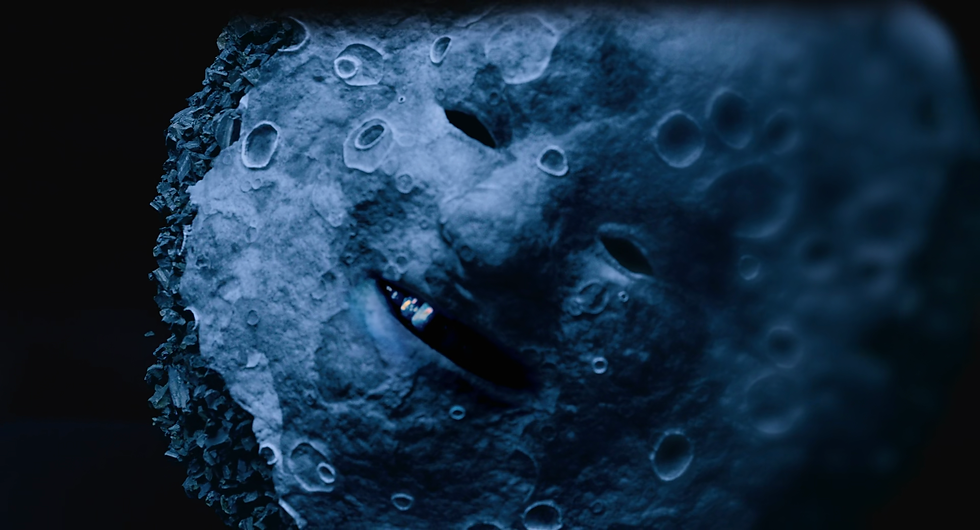I SAW THE TV GLOW Review
- Jack Eureka
- Jun 6
- 2 min read

Here in the absence of words to defend myself, without examples, without models, I began to believe voices in my head — that I was a freak, that I am broken, that there is something wrong with me, that I will never be lovable.
The above is taken from a speech by Lana Wachowski at the 2012 Human Rights Campaign gala. Ordinarily and especially a private person, she spoke at length about her life and its spectrums and transitions. Catholic school outcast to superstar director. From nearly jumping in front of a train to having everything except the thing that matters most.
This perpetual unease described a parallel to what Schoenbrun is mining in I Saw the TV Glow. Whereas Wachowski (gratefully) survived her struggle and found herself, Smith is still a boy when the story begins. Outcasted even by a party there to protect him, he buries his feelings in the dreamy and phosphorescent part of his brain. Down a grey channel neither good nor bad, but safe. His truth only activated by the opening credits to The Pink Opaque, or in interaction with the only living soul who understands his unspoken plight (Lundy-Paine). But then he returns home on time, a teenager still infantilized by that same party. A home where living your reality is an act of radioactive rebellion.
Some would say you can't rebel forever, and his struggle, and its constant second conversation in his head, is to be buried. To save himself and his sanity. Forced out of the present and rendered mere memory. Past. Schoenbrun visualizes living on both sides of memory with a nebulous outline. Who we were upon pubescent reflections and discoveries versus our actual (possibly forgotten and shackled) selves now. A canvas of lyrical past they wield purposefully. The Pink Opaque's ratio and look, the voting booth in Clinton's America, even the tube TV itself, all leveraging nostalgia as conduit rather than mere reference. Timeless in its depiction of loneliness in suburbia, where the options for outcasts are (1) to conform and trap yourself in the scratchy woolen blanket of known acceptance, or (2) to self-isolate, and hide behind the reflection of your true self in pop culture. Smith oscillates between the two, in a limbo of true monsters and prolonged suffocation.
But the choice is always there, even as the stakes change and life transitions. Waiting to remind in tape or stream. A picture of your free self, as character in the glow. Burial sampled Wachowski's speech on his 2013 EP Rival Dealer. A moving extended play as prayer for the unseen and unloved. Another track on it, titled "Hiders", contains the sampled lyrics "You are the sound it flies/The sound flies home", which parallel Lundy-Paine's point in the final stanza of the film. Asking the Shakespearean question with new evidence, and a chance to begin The Pink Opaque's sixth season.
The above was taken from my Letterboxd review.
